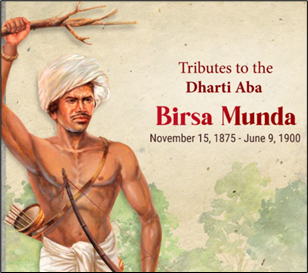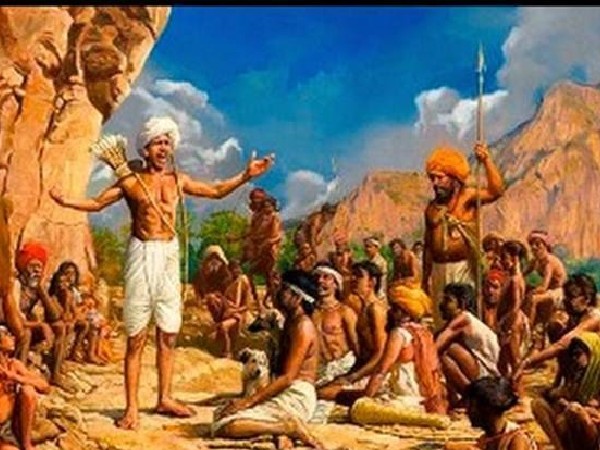SYLLABUS
GS-1: Modern Indian history from about the middle of the eighteenth century until the present- significant events, personalities, issues.
Context:
India celebrates Janjatiya Gaurav Divas (Tribal Pride Day) on November 15 every year to commemorate the birth anniversary of the tribal freedom fighter and anti-colonialist Birsa Munda.
More on the News
- As a mark of Birsa Munda’s heroic courage and deed in 2021, the Government of India declared November 15, the birth anniversary of Birsa Munda, as “Janjatiya Gaurav Diwas”, Tribal Pride Day.
- The year 2024-25 is being celebrated as Janjatiya Gaurav Varsh to commemorate 150 years of his birth.
- The Ministry of Tribal Affairs is establishing 11 museums to commemorate various tribal movements and uprisings against the British rule and promote their cultures and histories through digital initiatives such as Adi Sanskriti and Adi Vaani.
Birsa Munda

- He is known as “Dharti Aba” (“Father of the Earth”)
- He was born on November 15, 1875, in Ulihatu village near the present Ranchi city, Jharkhand.
- The Munda is a tribe of nomadic-hunters-turned-farmers who lived in the Chotanagpur region in today’s Jharkhand.
- Birsa, at the age of 12, converted to Christianity in 1886, but later he rejected the colonial missionaries’ influence.
- He grew up witnessing the constant exploitation of tribals whose lands were taken by dikus (outsiders who exploited them), thikadars, zamindars, and moneylenders under British rule.
- Later, he founded a new sect known as the Birsait, and he was called Bhagwan by his followers.
- In 1895, the British arrested him and charged with rioting and subsequently jailed him for two years.
- He raised the slogan “Maharani raj tundu jana oro abua raj ete jana”, calling upon tribals to end British rule and restore their own governance.
- He led the Ulgulan or “Great Tumult” (1899–1900)—a fierce movement for tribal self-rule and the restoration of Khuntkatti (community land rights), using weapons and guerrilla warfare.
- On March 3, 1900, Munda was arrested by the British police along with his tribal guerrilla army at the Jamkopai forest in Chakradharpur. Later, he died in Ranchi Jail due to an illness on June 9, 1900, at the age of 25.
- The movement also contributed to the government’s repeal of the begar system and led to the Tenancy Act (1903), which recognised the khuntkhatti system. The Chotanagpur Tenancy Act (1908) later banned the passage of tribal land to non-tribal folks.
Ideology of Birsa Munda
- Known as Dharti Aaba (“Father of the Earth”), Birsa Munda envisioned Abua raj – a moral, self-governed society free from colonial influence.
- He believed that tribals must retain full ownership of their ancestral land and must resist all forms of land alienation.
- He opposed exploitation by dikus, thikadars, zamindars, and moneylenders and fought to protect tribals from economic oppression.
- He encouraged tribals to take pride in their cultural identity and to preserve their traditional customs and values.
- He sought to reform tribal society by discouraging alcoholism and indebtedness that weakened community strength.
Source:
News On Air
PIB
PM India

